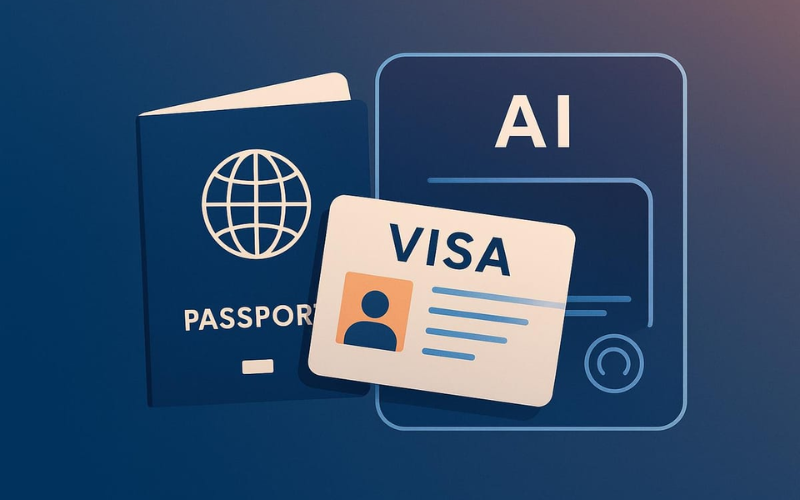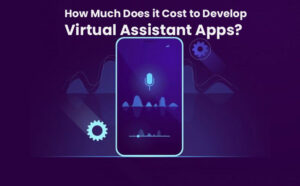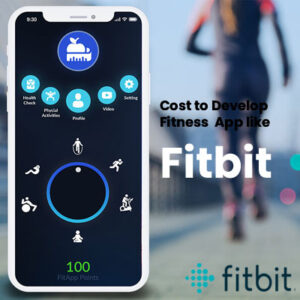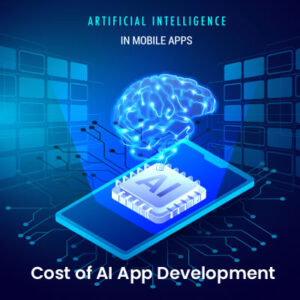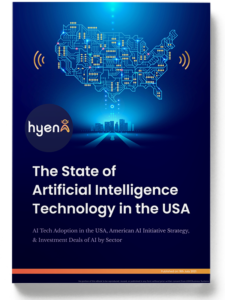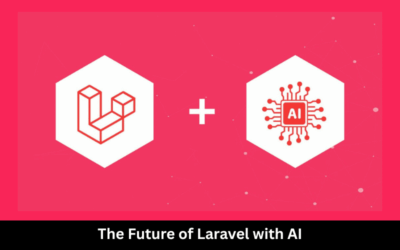Role of AI in Revolutionizing Visa Processing in the UAE
Role of AI in Revolutionizing Visa Processing in the UAE
With increasing globalization, tourism travel, business travel, investment travel, or study travel these days has turned into a cross-cultural interaction and economic growth. United Arab Emirates (UAE) is a worldwide business center, tourism destination, and center for innovations. Millions of tourists, foreign workers, and investors annually going through its visa procedures need speed, security, and reliability of processing.
Step in Artificial Intelligence (AI) in visa processing. AI is accelerating automation and securing the visa application process / Visa Processing and the UAE is at the forefront. This blog offers a close look at how, why, and where AI is re-engineering visa-processing in the UAE, what’s next, what the final hurdles are, and what the future holds.
The UAE’s Digital & AI Vision
The UAE has also pursued universal adoption and digitalization at the government scale. The strategy for Artificial Intelligence adoption is placing the UAE among world leaders in building AI.
One of the most influential institutional bodies is the Ministry of State for Artificial Intelligence, Digital Economy, and Remote Work Applications, established in 2020, which is responsible for overseeing AI governance, advancing the digital economy, and promoting remote work innovation.
Amid these developments, visa processing has become a hub of innovation, driven by high application volumes, global mobility, and the demand for secure, efficient systems. Through AI technologies, the UAE aims to cut administration burden, accelerate processing times, strengthen security, and simplify the visa experience for applicants.
What are Traditional Visa-Processing Challenges?
The pre-AI era of visa systems was hindered by several key challenges, such as
- Manual verification of document: Manual scanning certificates, checking identification documents, and cross-matching slowing data processing and highly prone to errors.
- Long processing time: High application volumes and operational bottlenecks often led to prolonged waiting periods for applicants
- Inconsistency in evaluations: Variations in standards, officer fatigue, and limited oversight often led to processing errors and uneven decision-making.
- Security Vulnerabilities: Manual processes made it difficult to detect forgery or impersonation, increasing the risk of breaches and fraudulent applications.
- Lack of real-time status visibility: Application status can be hidden from the applicants.
- Performance and scalability bottlenecks: At the peak (high volume periods, seasonally, big events), the legacy system is affected.
Top Use Cases of AI in Visa Processing
Let us examine the most relevant uses of AI in the UAE visa application process.
-
AI Document Verification & Data Input
Document verification (passport, certificates, photos, and finances) and data entry are perhaps the most labor-intensive parts of a visa application. AI software now:
- Scans, uploads, and identifies corresponding fields automatically (passport number, dates, names).
- Vouchers are verified (e.g., photo versus passport information or certificate expiration) automatically.
- Real -time candidate feedback if the upload is poor quality, missing, or non-compliant.
- The automation prevents drudgery, saves processing time, and prevents small rejections.
-
Biometric/Smart-Border Systems
Application for a visa does not end with submission: border control and identification are needed. AI enters the scene here, too:
- AI’ Biometric technology is speeding up immigration screening.
- Smart Gate systems/automated border control, where the traveler simply walks through e-gates which read their biometric data and compare it with passport/visa data.
- Risk detection algorithms that determine whether a subject is likely to be a security risk and detect inconsistencies in identity.
For example, recently, there was a statement that the UAE government is using an AI system (called “Eye”) to verify documents like images, passports, and certificates to verify them as original in the work visa process.
-
Conversational AI & Applicant Support
The applicants will have a few questions, such as visa type, documents needed, and application status. AI chatbots and virtual assistants help with:
- 24/7 clocking support: AI virtual assistants in visa processing apps answering visa-type questions, eligibility, and what’s next.
- Step-by-step guided form completion, reminding of missing details or wrong input before submitting.
- Reduced workload for human support staff and better applicant experience with faster response.
-
Predictive Analytics, Risk Assessment & Workflow Optimization
Beyond the flat-out boring stuff, AI is also used in more advanced scenarios, such as:
- Volume and spike prediction for applications (e.g., when big events are occurring) so agencies can plan.
- Risk-modeling: Triggering human review of those mobile apps that fall short (e.g., unusual travel patterns, inconsistency) while sending low-risk applications.
- Efficiency of workflow: Routing applications along the shortest check-paths and automating renewals when all conditions are met, maximizing efficiency of case management.
Benefits for Applicants, Authorities & the Economy
For Applicants
- Enhanced processing speed: What used to take weeks or days to achieve can now be achieved in hours or even minutes in certain instances.
- Enhanced transparency: Better status monitoring, instant response to missing documents or errors.
- Less errors and re-submission: Since AI checks for uploads, identifies issues beforehand, applicants are not turned down due to stupid mistakes.
- Better support: Assistants and chatbots minimize stress from the process.
- Better user experience: Less paperwork, fewer office visits, more online interaction.
For Authorities (Immigration, Labor, Border Control)
- Better efficiency: Automation eliminates routine manual tasks, improving productivity by allowing them to handle complicated cases.
- Resource optimization: Predictive analysis allows agencies to handle better in peak hours.
- Increased security: AI allows fraud detection, authentication, and inhibits forgery of documents.
- Consistency: Automation provides consistency in results and removes bias by human error.
- Cost Savings: In the long run, automated operations eliminate paperwork, delay, and associated overheads.
For the Economy & Country
- Competitiveness: A country capable of processing visas quickly and correctly lures more business, visitors, and investments.
- Scalability: Since the UAE is expanding to a broader world role (events, tourism, business hubs), the visa system can evolve.
- Reputation: Digital-first visa systems shout innovation and productivity.
Key Case Studies & Current UAE Developments
Below are some real AI initiatives in the UAE, which verify the AI visa-processing revolution in action:
- Recent development: The MoHRE’s “Eye” system will employ AI to scan work-permit documents (images, passports, certificates), reduce human intervention, and approve them at lightning-fast speed.
- Specialist visit visa streams: Four specialist visit visas were introduced on September 29, 2025, by the Federal Authority for Identity, Citizenship, Customs, and Port Security (ICP), which include AI specialists, events and entertainment, and cruise industry personnel, and these demonstrate how the regime is structuring itself to address the AI and technology sector.
- Private AI visa-processing service: AI is utilized by Atlys to run within form-automations, predictive schedules, and document scans; in UAE environments, these technologies help make applicants capable of submitting error-free applications and best-fit visas.
These are the means by which the UAE is combining government policy, new forms of visas, and private-sector tools to innovate.
Future Outlook & Emerging AI Trends in Visa Processing
How will the future of AI processing of visas in the UAE and around the world be?
- Complete automation of low-risk visas: Every “low-risk” type of visa would be completely automated by AI, with virtually no exceptions for only human touch.
- Personalized visa experiences: AI in visa processing will personalize visa terms, document lists, and recommendations depending on a candidate’s past (travel, visit purpose, destination). A “personalized” experience awaits.
- Unified national digital identity platforms: The UAE will unify visa platforms with national digital identity, biometric registration, interagency information sharing, and streamlined processes.
- Dynamic risk-scoring & adaptive policies: AI may dynamically alter visa-criteria or processing levels in real-time (e.g., stricter for low-risk nations, stricter for others).
- Interoperability at the border: With more and more countries adopting AI-immigration processes, global interoperability, data sharing, and uniform visa templates derived from AI are a matter of time.
- New types of visas: Highlighted in this regard are new AI employees, events, and entertainment visas introduced by the UAE, which show that the visa regime of visas is being revolutionized with the help of technology.
Conclusion
AI development isn’t just a tech-buzzword in visa processing in the UAE, it’s becoming the engine that drives a smarter, faster, more secure system. From document scanning to biometric crossing of borders, from waiting rooms to live chatbots, AI in visa processing can change the experiences.
As an AI development expert, Hyena stands at the forefront of this transformation. With deep expertise in intelligent automation, predictive analytics, and conversational AI, we empower government agencies and enterprises to reimagine digital visa systems, reducing processing times, enhancing security, and elevating citizen satisfaction.
Ready to modernize your visa operations with AI? Let’s connect.
